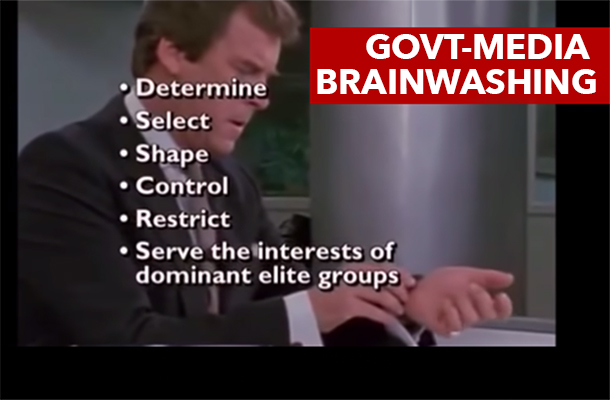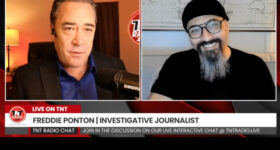
The following video is a concise summary of Noam Chomsky and Edward Herman’s seminal text published in 1988 entitled Manufacturing Consent, deconstructing how the corporate media functions in relation to government propaganda operations and engineering a public ‘consensus’ on any issue, large or small. The formula is simple once you understand it, and this analysis has never been more useful than right now during this so-called ‘global pandemic.’
Watch this excerpt from the documentary, “Manufacturing Consent: Noam Chomsky and the Media” (1992).
Open Culture writes…
We might debate whether the U.S. is a democracy or a republic, but according to Chomsky, both notions may well be illusory.
Instead, Chomsky argues in Manufacturing Consent—his 1988 critique of “the political economy of the mass media” with Edward S. Herman—that the mass media sells us the idea that we have political agency. Their “primary function… in the United States is to mobilize support for the special interests that dominate the government and the private sector.” Those interests may have changed or evolved quite a bit since 1988, but the mechanisms of what Chomsky and Herman identify as “effective and powerful ideological institutions that carry out a system-supportive propaganda function” might work in the age of Twitter just as they did in one dominated by network and cable news.
[That consent is manufactured using the following 5 components:]
1. Media Ownership—The endgame of all mass media orgs is profit. “It is in their interest to push for whatever guarantees that profit.”
2. Advertising—Media costs more than consumers will pay: Advertisers fill the gap. What do advertisers pay for? Access to audiences. “It isn’t just that the media is selling you a product. They’re also selling advertisers a product: you.”
3. Media Elite—“Journalism cannot be a check on power, because the very system encourages complicity. Governments, corporations, and big institutions know how to influence the media. They feed it scoops and interviews with supposed experts. They make themselves crucial to the process of journalism. If you want to challenge power, you’ll be pushed to the margins…. You won’t be getting in. You’ll have lost your access.”
4. Flack—“When the story is inconvenient for the powers that be, you’ll see the flack machine in action: discrediting sources, trashing stories, and diverting the conversation.”
5. The Common Enemy—“To manufacture consent, you need an enemy, a target: Communism, terrorists, immigrants… a boogeyman to fear helps corral public opinion.”
Chomsky and Herman’s book offers a surgical analysis of the ways corporate mass media “manufactures consent” for a status quo the majority of people do not actually want. Yet for all of the recent agonizing over mass media failure and complicity, we don’t often hear references to Manufacturing Consent these days. This may have something to do with the book’s dated examples, or it may testify to Chomsky’s marginalization in mainstream political discourse, though he would be the first to note that his voice has not been suppressed. Watch:
READ MORE PROPAGANDA NEWS AT: 21st Century Wire Propaganda Files
PLEASE HELP SUPPORT OUR INDEPENDENT MEDIA PLATFORM HERE














